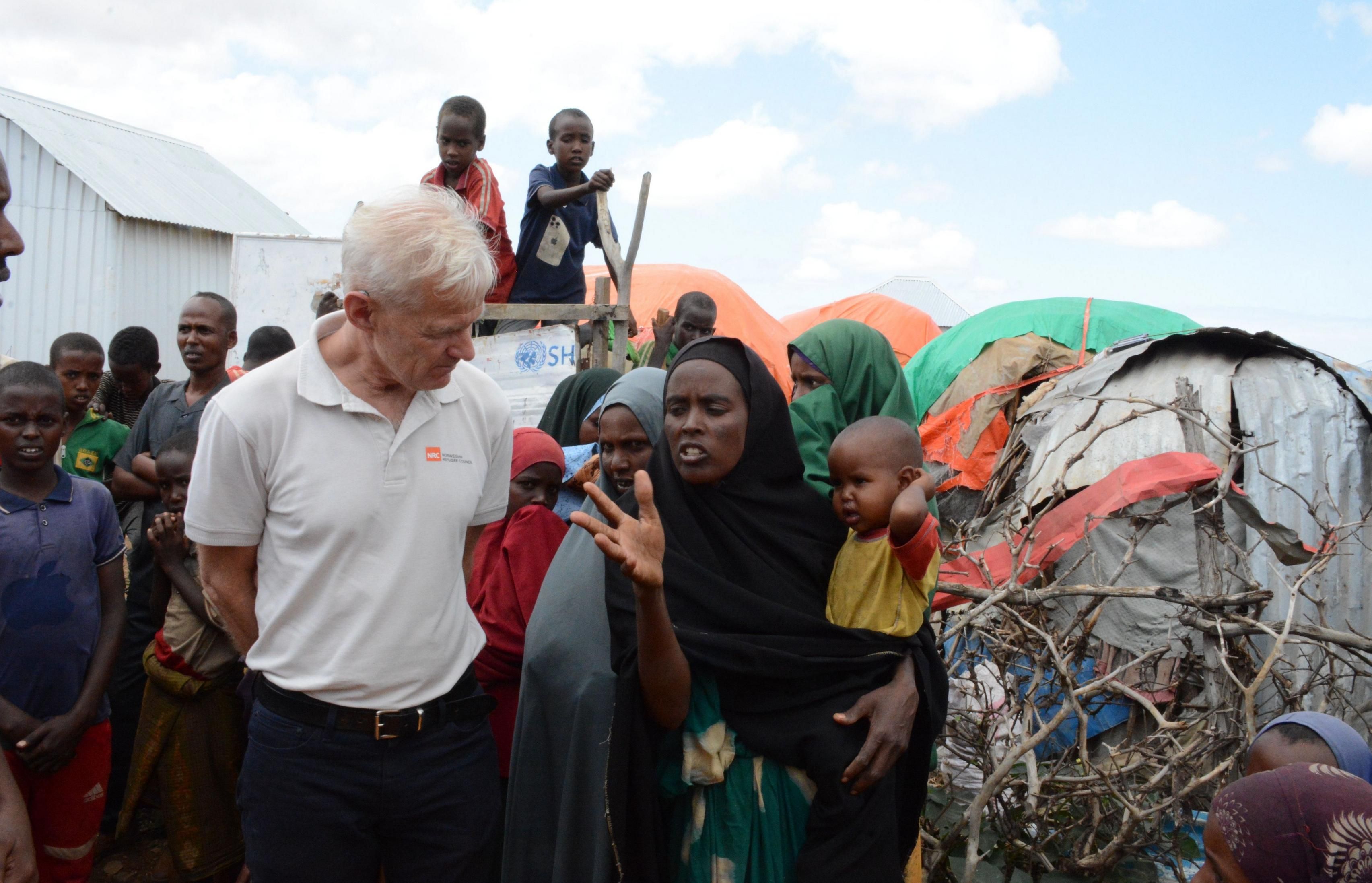'Broken' Capitalist Food System Drives Soaring Global Hunger: Oxfam
Criticism from the charity's food policy director came in response to a new United Nations report revealing that around 1 in 10 people worldwide went hungry last year.
Around 1 in 10 people went hungry last year in a world losing ground on its collective goal of ending all forms of hunger, a report released Wednesday by United Nations agencies revealed, prompting sharp censure from a leading charity.
"Long-standing political failure to address how we feed all the people in the world has made our food system susceptible to fragility and failure."
As many as 828 million people experienced hunger in 2021, 150 million more than were affected just two years earlier, according to the latest State of Food Security and Nutrition in the World (SOFI) report.
The paper—a joint publication of the U.N. Food and Agriculture Organization (FAO), the International Fund for Agricultural Development (IFAD), the U.N. Children's Fund (UNICEF), the U.N. World Food Program (WFP), and the World Health Organization (WHO)—cited conflicts, climate-driven extreme weather events, and economic shocks as primary causes of hunger.
The report also found that nearly 1 in 3 people worldwide last year were moderately or severely food insecure, meaning they lacked reliable access to enough affordable, nutritious food.
"It is deeply concerning that global hunger has been spiraling since 2019 and is now at such devastating levels around the world," Hanna Saarinen, Oxfam International's food policy lead, said in response to the report.
"This is happening not because of a shortage of food," Saarinen continued, "but rather as a consequence of a broken food system further undermined by conflicts, the effects of the Covid pandemic, and worsening climate change."
"Despite this being a global food crisis, seeing millions of people going hungry today, food billionaires' wealth has reached stratospheric levels, increasing by $382 billion just over the last two years," she added. "Our food system has for years perpetuated inequality, impoverished small-scale farmers, and pushed millions of vulnerable people into hunger while wreaking havoc on the climate."
Saarinen said that while "it is easy to blame today's food crisis" on Russia's ongoing invasion of Ukraine that began in February, "long-standing political failure to address how we feed all the people in the world has made our food system susceptible to fragility and failure well before now."
The U.N. report projects that nearly 670 million people, or around 8% of the world's population, will still be facing hunger at the end of this decade.
"These are depressing figures for humanity. We continue to move away from our goal of ending hunger by 2030," IFAD President Gilbert F. Houngbo said, referring to the 2030 Agenda for Sustainable Development, which was adopted by all U.N. member states seven years ago.
"The ripple effects of the global food crisis will most likely worsen the outcome again next year," he added.
Oxfam's Saarinen warned that "we will not break the vicious cycle of hunger and food inflation without addressing the deep inequalities fueling them."
"We must fundamentally reimagine a new, more just, and sustainable global food system—one that serves the planet and millions of people, rather than a handful of big agribusinesses," she asserted.
Noting the dramatic shortfalls in pledged funding for anti-hunger initiatives in places like East Africa—where tens of millions of people are facing famine amid a historic drought—Saarinen said that "governments must stop making empty promises or creating more bureaucratic processes."
"Instead, they need to invest in small-scale food producers and food workers," she argued. "They need to repurpose our global agriculture and food system to better serve the health of people, our planet, and our economies."
"Western governments must also free up resources," added Saarinen, "including by taxing food companies and billionaires, in order to invest in diverse, local, sustainable food production that helps countries to become less dependent on food imports; and support smallholder food producers, especially women."



0 Comments:
Post a Comment
Subscribe to Post Comments [Atom]
<< Home